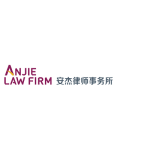Back at the end of April, the Committee of the Science and Technology Innovation Board at the Shanghai Stock Exchange announced that the meeting for reviewing the initial public offering (IPO) application of MEMSensing, a Chinese MEMS microphone sensor supplier, was cancelled due to an "emergence of significant matters." The "significant matters" they were referring to were 16 patent disputes brought by Goertek seeking both permanent injunctions and damages totalling over RMB 100 million ($14.5 million). Goertek and MEMSensing are competitors producing MEMS microphones, a key component in the smart speakers of Google, Amazon, Apple, Alibaba, and Xiaomi.
MEMSensing is not the first Chinese firm threatened by patent litigations when it was about to go public. In 2019, Jiangsu Tongling Technology sued Bull Group, a company known as a socket and switch manufacturer, on the eve of its IPO claiming damages of RMB 1 billion, which is almost equal to one full year of Bull Group's net profits. Other examples include Silead (a manufacturer of under-glass fingerprint sensors), Yonon Technology (a bike-sharing vendor), BPSEMI (an LED manufacturer) and Aimatech (an electric bicycle manufacturer). Ankon, a gastroscope system supplier, had to withdraw its IPO application after being sued for patent infringement in eight cases.
The regulations for the Administration of Initial Public Offering and Listing of Shares stipulate that an application for public listing may not be approved if there is a risk of material adverse changes in the acquisition or use of important assets or technologies such as trademarks, patents, proprietary technologies, and franchises in use by the issuer, and such a risk will affect the issuer's continued profitability.
Pre-IPO firms are quite vulnerable to patent infringement lawsuits as it is nearly impossible to eliminate the risk within the IPO examination period by obtaining a favourable judgment. It usually takes at least 12 months or longer for the first-instance trial and an additional nine to 15 months for the second-instance trial. Further, the entire IPO process in China takes much longer than overseas IPO processes. This long process provides ample opportunities for third parties to pursue IP litigation while an IPO application is pending.
Pre-IPO firms are made vulnerable by the possibility of a permanent injunction. The possibility of a sales ban imposes great pressure on firms in patent-intensive industries, such as the software and semiconductor industries, as a design-around would be extremely difficult and costly. What makes the situation even more challenging is the rapid growth of patent filings, including utility model and design patents, in the last decade, many of which are often low quality patents due to a lack of substantive examinations. Most utility models are granted within a couple of months but can be enforced as long as an official search report shows prima facie proof of validity. In practice, when a company announces an IPO plan, its competitors can assert dozens of utility models in an attempt to block the IPO. It can be difficult for the pre-IPO firm to persuade the stock exchange that although the product may seem similar to the patents, the risk of infringement is low because the asserted patents are not likely to be patentable.
Another major concern is that both the stock exchange authority and investors are not familiar with the patent system and may overestimate the uncertainty caused by patent litigation. Firms are becoming increasingly strategic in these pre-IPO fights. In addition to patent infringement cases, Goerte also filed patent ownership disputes and patent invalidation proceedings against MEMSensing. By bringing the patent ownership disputes against MEMSensing's recruiting of a former employee, Goertek seemed to be trying to question MEMSensing's research and development capabilities. Goertek's patent invalidation petition against MEMSensing's core patents as declared in its prospectus may have been perceived as questioning the validity of MEMSensing's technology.
The most effective defence for a pre-IPO firm is to file an invalidation petition against the asserted patents. For example, the Bull Group finally went public after the two asserted patents were declared invalid. Moreover, non-infringement opinions have proven to be a strategic tool in persuading the committee of the stock exchange and investors.
The Committee of the Science and Technology Innovation Board finally approved MEMSensing's IPO application on June 2 2020. This is good news for MEMSensing. However, it is almost certain that more pre-IPO firms will run into patent challenges. It is estimated that China will most likely double its listed companies in the next three to five years. Patent fights will intensify. China might have to, sooner than expected, revisit its current IPO process and decide how significant a role IP litigation should play in the entire process. Recently, led by Professor Liu Chuntian of the China IP Law Society, an IP alliance of listed companies was formed to develop advocacy programmes to reduce the risks of IP litigation for listed companies or those aiming to submit an IPO.

|
Ning Dong |
|

|
Yong Lu |












